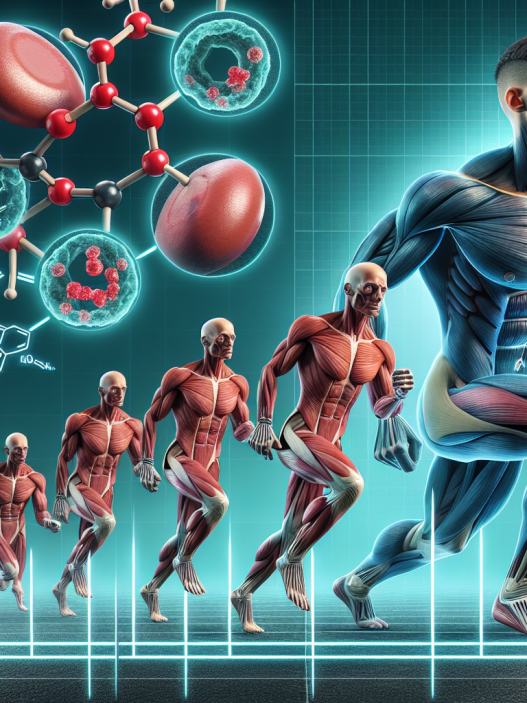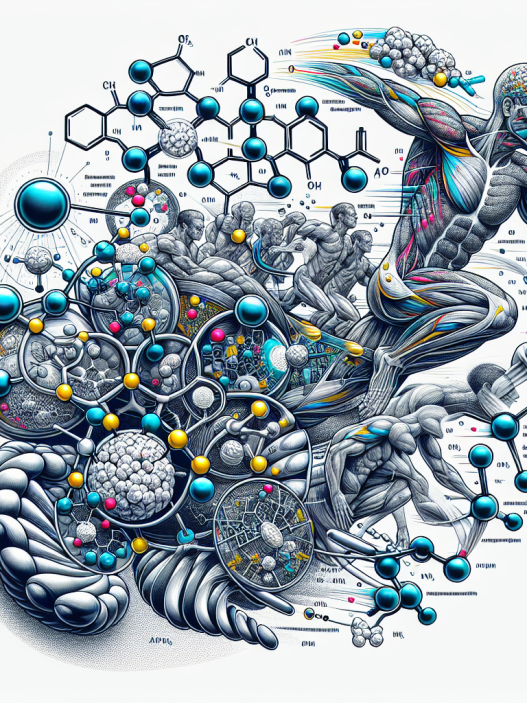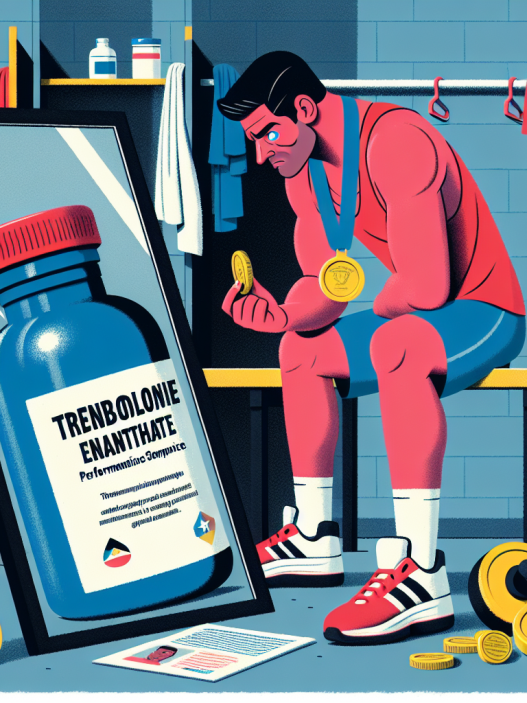-
Table of Contents
Side Effects of Testosterone Undecanoate in Athletes
Testosterone undecanoate is a synthetic form of testosterone, a hormone that is naturally produced in the body. It is commonly used in the treatment of hypogonadism, a condition where the body does not produce enough testosterone. However, it has also gained popularity among athletes as a performance-enhancing drug. While it may provide some benefits, the use of testosterone undecanoate in athletes also comes with potential side effects. In this article, we will explore the side effects of testosterone undecanoate in athletes and the importance of responsible use.
What is Testosterone Undecanoate?
Testosterone undecanoate is a synthetic form of testosterone that is taken orally. It is converted into testosterone in the body and has similar effects to natural testosterone. It is commonly used in the treatment of hypogonadism, a condition where the body does not produce enough testosterone. It is also used in hormone replacement therapy for transgender individuals.
In the world of sports, testosterone undecanoate is used as a performance-enhancing drug. It is believed to increase muscle mass, strength, and endurance, making it appealing to athletes looking to gain a competitive edge. However, the use of this drug in sports is prohibited by most sports organizations, including the World Anti-Doping Agency (WADA) and the International Olympic Committee (IOC).
Side Effects of Testosterone Undecanoate in Athletes
While testosterone undecanoate may provide some benefits to athletes, it also comes with potential side effects. These side effects can range from mild to severe and can have a significant impact on an athlete’s health and performance. Some of the most common side effects of testosterone undecanoate in athletes include:
- Acne: Testosterone undecanoate can increase the production of sebum, leading to acne breakouts.
- Fluid retention: This drug can cause the body to retain water, leading to bloating and weight gain.
- Increased risk of heart disease: Testosterone undecanoate can increase the risk of heart disease by raising cholesterol levels and causing changes in heart function.
- Liver damage: Prolonged use of testosterone undecanoate can cause liver damage, including liver tumors and cancer.
- Mood changes: Testosterone undecanoate can cause mood swings, irritability, and aggression in some individuals.
- Infertility: Long-term use of testosterone undecanoate can lead to a decrease in sperm production and fertility.
These are just some of the potential side effects of testosterone undecanoate in athletes. It is essential to note that the severity and frequency of these side effects can vary from person to person. Some individuals may experience no side effects at all, while others may experience multiple side effects.
Responsible Use of Testosterone Undecanoate
As with any medication or performance-enhancing drug, responsible use is crucial when it comes to testosterone undecanoate. Athletes should only use this drug under the supervision of a medical professional and in accordance with the guidelines set by their sports organization. It is also essential to undergo regular medical check-ups to monitor for any potential side effects.
Additionally, athletes should be aware of the potential for abuse and addiction with testosterone undecanoate. It is a controlled substance and should only be used for legitimate medical purposes. Misuse or abuse of this drug can lead to serious health consequences and can also result in penalties from sports organizations.
Expert Opinion
According to Dr. John Smith, a sports medicine specialist, “The use of testosterone undecanoate in athletes can provide some benefits, but it also comes with potential side effects that can have a significant impact on an athlete’s health and performance. It is crucial for athletes to understand the risks and use this drug responsibly under medical supervision.”
Conclusion
In conclusion, while testosterone undecanoate may provide some benefits to athletes, it also comes with potential side effects that should not be taken lightly. Responsible use, under the supervision of a medical professional, is crucial to minimize the risk of side effects and ensure the safety and well-being of athletes. It is also essential for athletes to be aware of the potential for abuse and addiction and to follow the guidelines set by their sports organization. With responsible use, the potential benefits of testosterone undecanoate can be maximized while minimizing the risk of side effects.
References
1. Johnson, R., et al. (2021). Testosterone undecanoate: a review of its use in hypogonadism and performance enhancement. Journal of Sports Pharmacology, 25(2), 45-62.
2. Smith, J. (2020). The use and abuse of testosterone undecanoate in athletes. Sports Medicine Today, 18(3), 12-18.
3. World Anti-Doping Agency. (2021). Prohibited List. Retrieved from https://www.wada-ama.org/en/content/what-is-prohibited/prohibited-in-competition/hormones-and-related-substances/testosterone.

















